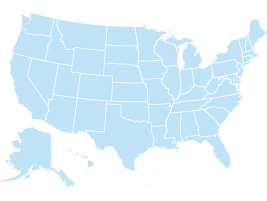How to Recognize Scareware
The meteoric rise of Internet usage since its mainstream introduction has led to an equally large amount of scams, malware, and viruses online. This has started a constant arms race between Internet users and the crooks who are trying to take advantage of them. As many people have grown comfortable with using antivirus software to clean their hardware, scammers have decided to play a new trick.
Dubbed “scareware” this type of malicious software takes the game to the next level. Instead of trying to hide viruses and spyware inside of innocuous-looking programs, criminals have begun hiding in plain sight. One common scene of scareware starts when you visit a website.
Upon opening the page, a window may pop up alerting you that there are viruses on your computer. Not to worry it reassures you, because if you download this free antivirus software, you will be fine. The unsuspecting web surfer may then attempt to clean their computer of virus with software, which is itself a virus or some form of malware.
Worse still, many of these programs are not free. Instead, the victims pay to put a virus or malware on their computers.
Often the pop-ups for scareware are designed to look like they originated from your own computer. This adds legitimacy to the deception as victims are more likely to trust messages they think are coming from their own computer.
Avoiding scareware can be difficult, as it is specifically designed to be hard to recognize. As a rule of thumb, though, any time you receive unsolicited information on the Internet you should treat it cautiously.
Avoid opening pages that you do not trust. When on the Internet, never make impulse purchases, especially for software or other products from suspicious sources. If you have not heard of the company before, it may be because that company does not really exist, or is not a legitimate business.
Try searching for a mention of the company attempting to sell you software using a search engine. You may find advisories or comments from other users about the company. If you think you may be the victim of scareware, check the CashAdvance.com Consumer Scam Protection page for information on who to contact.
A cash advance, also referred to as a payday loan or payday advance, is a small, short-term loan that is intended to cover a borrower’s expenses until the following payday. Cash advances are intended for short-term financial relief and do not constitute long-term financial solutions. CashAdvance.com is not a lender and does not make loans or credit decisions. CashAdvance.com provides a loan request service only and is not acting as a representative, agent, or correspondent for any service provider or lender. Consumers are encouraged to consult CashAdvance.com’s State Consumer Resource pages to learn more about the risks involved with cash advances and local laws and regulations governing cash advances.
Consumer Financial Protection Bureau Provides Education and Oversight

Congress established the Consumer Financial Protection Bureau (CFPB) with the central mission of supervising banks, credit unions and other financial companies, and researching and analyzing consumer financial markets to ensure that consumers remain adequately informed to make sound financial decisions. A prime CFPB objective is enforcing lending laws and educating consumers and lenders on the risks, benefits, […]
BBB Issues Consumer Alert on Fraudulent Debt Collectors

Be wary of imposters posing as debt collectors. Using illegal data harvesting maneuvers, fraudulent debt collectors accumulate long lists of phone numbers of people they plan to victimize. The Better Business Bureau (BBB) has reported that people with low credit scores and payday loan borrowers are frequently targeted by scammers trying to collect on a […]
5 Steps to Protect Yourself from Online Lender Scams

Whenever engaging in any type of online financial transaction, consumers must be wary of the fraudulent practices that abound on the Internet. CashAdvance.com seeks to remind consumers that the best protection is keeping informed of the many perils out there as well as their flagging indicators. Learn how to keep your money and information secure […]
How to Identify Predatory Lending Practices

CashAdvance.com wants you to be as informed as possible when searching for a payday loan. To that end, the CashAdvance.com network of lenders has been created. Educating to ensure consumer protection requires publicizing the dangers of working with predatory lenders. CashAdvance.com makes a reasonable effort to work only with reputable lenders, but reports have surfaced […]
How to Recognize Scareware

The meteoric rise of Internet usage since its mainstream introduction has led to an equally large amount of scams, malware, and viruses online. This has started a constant arms race between Internet users and the crooks who are trying to take advantage of them. As many people have grown comfortable with using antivirus software to […]



